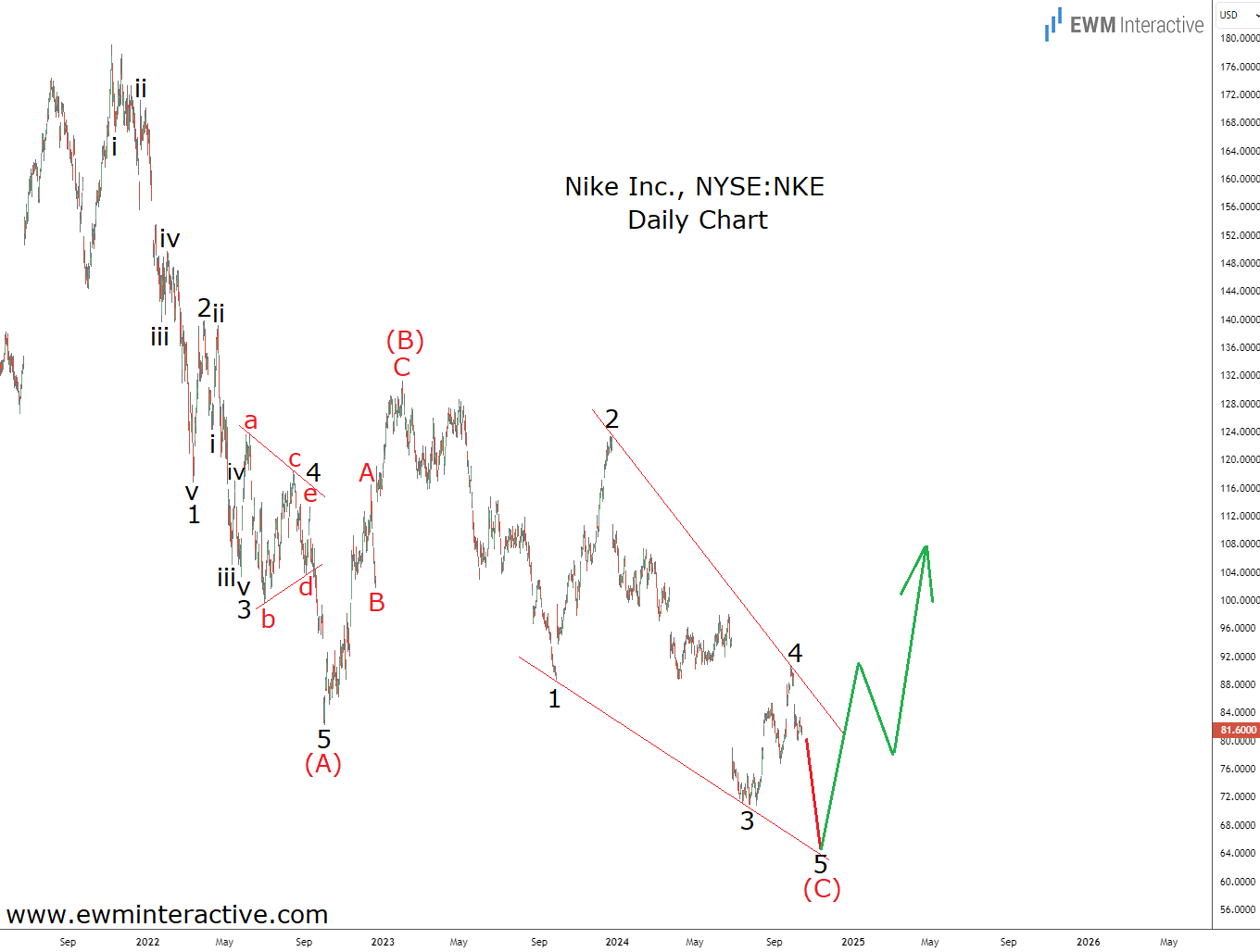Nike (NYSE:NKE) is the leading sports brand in the world, period. Ever since Phil Knight signed Michael Jordan in 1984, the company has been on an upward trajectory in revenue, profits and market value as it grabbed the leadership not only in basketball but also in athletics and even golf. It is fair to say that Nike has been a sure bet for investors for four decades now. Well, if we exclude the past three years, that is.
Nike stock reached an all-time high of $179.10 a share in late 2021 and is down by 54.4% since. That selloff isn’t entirely detached from fundamentals, though, as the company’s sales stagnated in 2023 and even began to decline in 2024. For the fiscal year ending-May, 2025, analysts predict a 7.4% sales drop to $47.55B.
That being said, Nike remains the brand everyone else in the sporting world compares to. The company is still highly profitable and with more cash than debt on its balance sheet, it has plenty of time to right the ship. But is the stock a good investment at current prices? The Elliott Wave chart below suggests that it is already searching for a bottom.
Following Nike’s multi-decade bull run, the risk of a major correction was always lurking. That risk has now materialized in what looks like a simple (A)-(B)-(C) zigzag. Wave (A) is a five-wave impulse pattern, marked 1-2-3-4-5, where the sub-waves of 1 and 3 are also visible.
Wave 4 was a triangle correction and while it touches the bottom of wave 1 in waves ‘a’ and ‘c’, the orthodox end at wave ‘e’ does not. So there is no violation of the Elliott Wave rules stating that the first and the fourth waves within an impulse must not overlap.
Wave (B) doesn’t look like corrections usually do, but it nevertheless has a three-wave structure, labeled A-B-C. This brings us to wave (C), which seems to be shaping up as an ending diagonal, whose wave 5 is still missing.
If this count is correct, Nike should make one last low in wave 5 of (C) in the mid-$60s a share. Then, the entire correction would be complete and it would be time for a notable bullish reversal as the preceding uptrend resumes.
